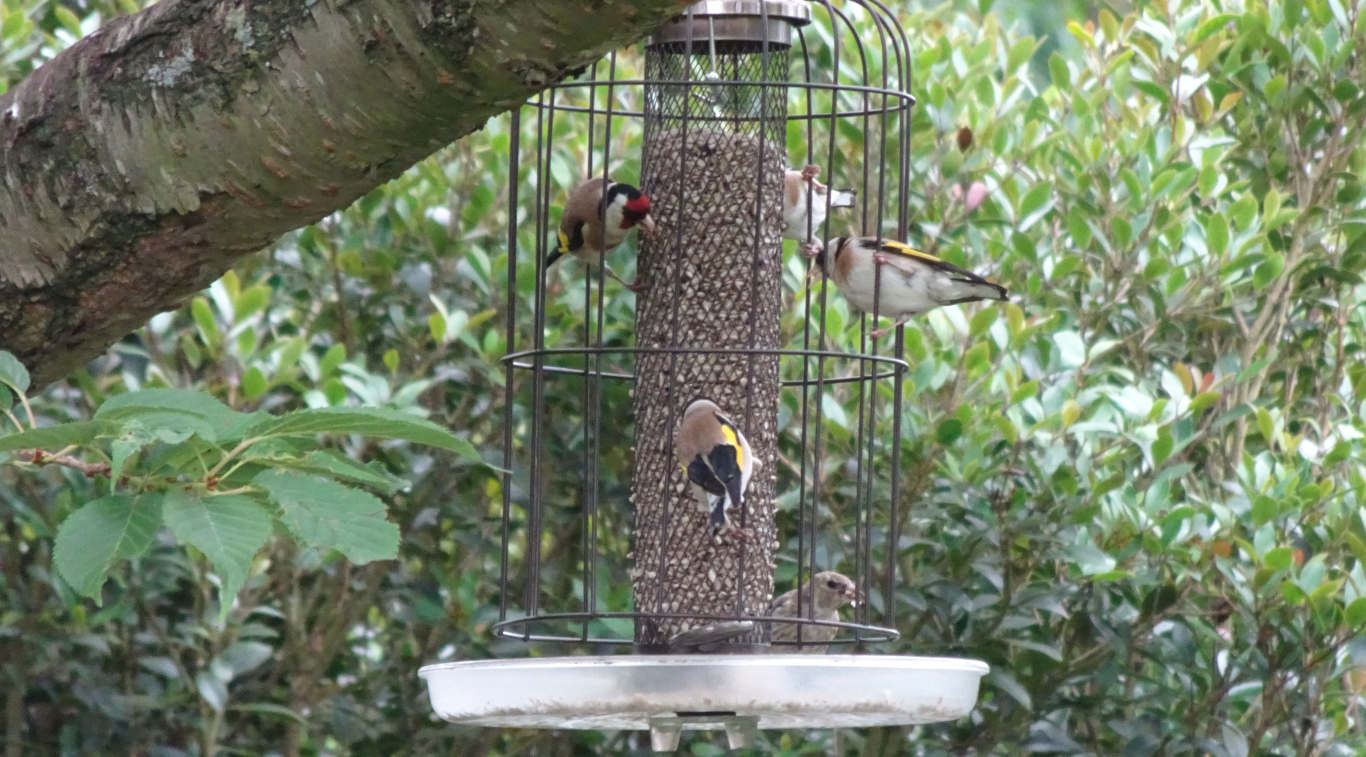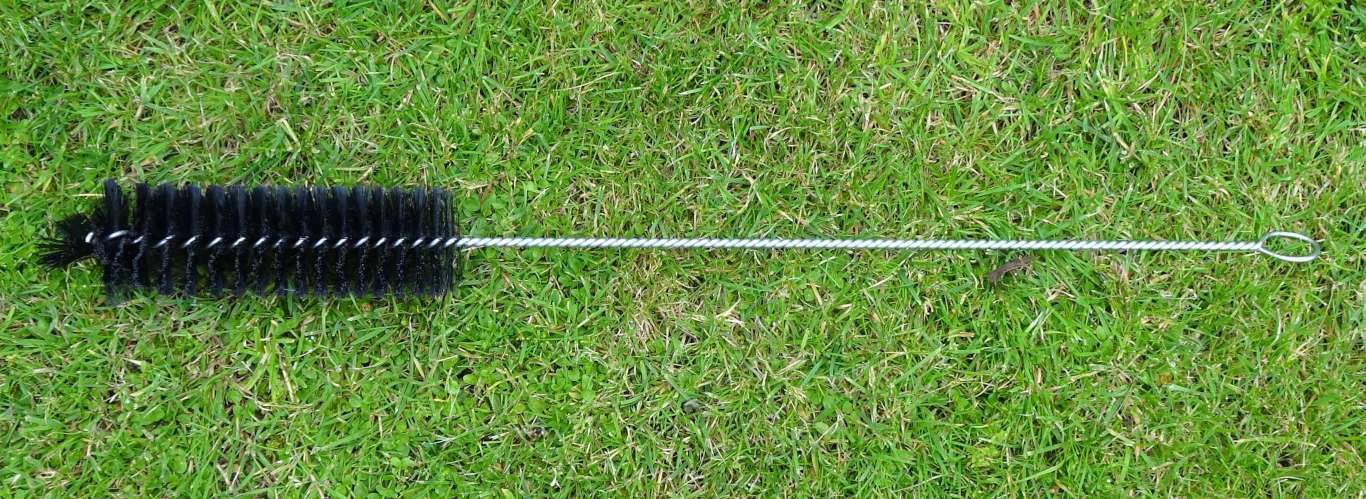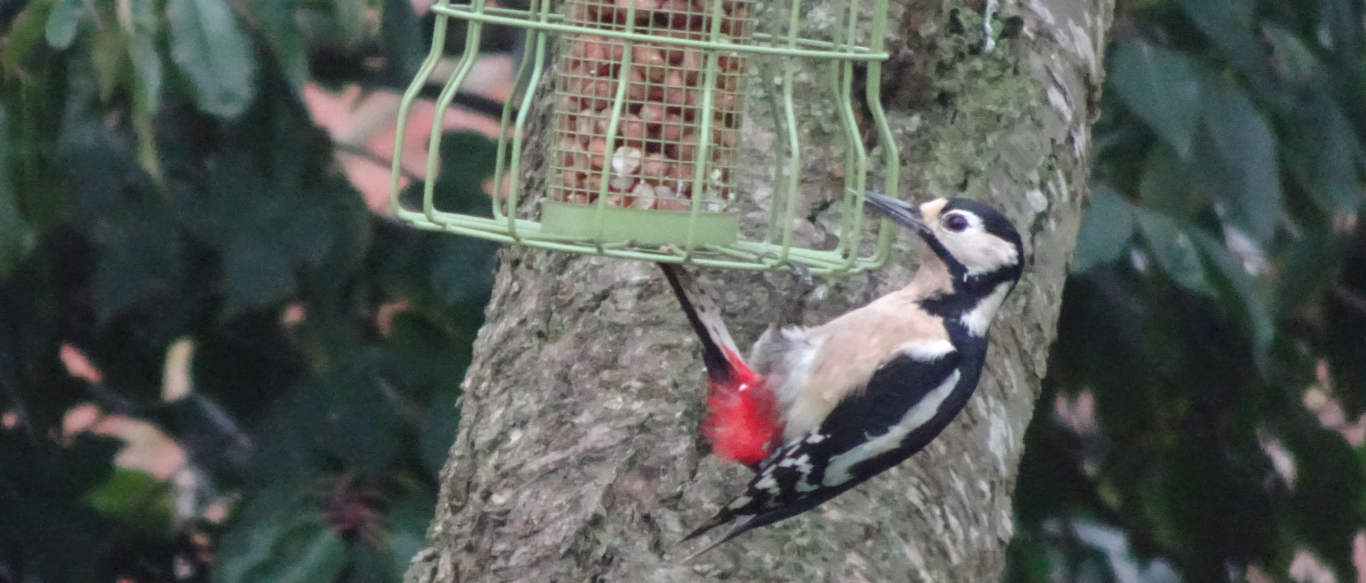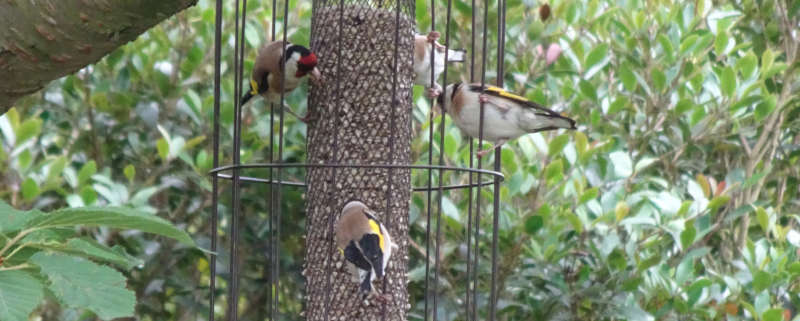It isn’t just humans that have to deal with epidemics, garden birds are also susceptible to infectious disease. To help prevent the spread of these diseases it’s very important that you keep your bird feeding stations clean and tidy.

What Should I Do to Keep my Feeders Clean?
Firstly, try not to feed the birds too much in one go as this can lead to food standing for longer periods providing more opportunity for it to go bad and attract unwanted germs and parasites.
Then, when you do feed the birds, try to clear away any excess partially eaten food, droppings or other unwanted debris from on or around the feeding station – keep a particular eye out for mouldy food such as bread which can be harmful to birds. This is a great start but, importantly, you should also give your feeders and birdbaths a good thorough clean on a regular basis.
How Often Should I Clean my Bird Feeders?
There are varying answers to this online, for example, The RSPB and British Trust for Ornithology use the word ‘regularly’ whilst the RSPCA suggest weekly.
There isn’t really a definitive answer to this question because every feeding station is different. When deciding how often to clean your feeders bear in mind that it depends on several factors.
- It depends on how busy your feeder is. The more birds that use the feeder the more chance that infectious disease will be present and therefore the more often you should clean.
- It depends on the weather. Germs, parasites and viruses love the warm and wet. These conditions allow bird diseases to spread more readily. You should therefore step up your cleaning regime in the summer months.
- It depends on what you are feeding. Dry seed will keep longer but bread and other perishables will quickly go bad and could potentially poison visitors to your feeding station.
- It depends on how busy your feeder is. The more birds that use the feeder the more chance that infectious disease will be present and therefore the more often you should clean.

What Should I use to Clean my Bird Feeder?
You need to use a cleaning product that will actively kill the germs and parasites that spread disease. Simple soap and water will often not be enough.
There are commercially available bird feeder cleaning products and these would seem to be the safest option but there are cheaper and more readily available alternatives.
The RSPB suggest a ‘5% disinfectant solution‘, the British Trust for Ornithology (BTO) suggest a “weak solution of domestic bleach“, the Scottish Wildlife Trust recommend using “Around a 5% disinfectant/bleach solution” solution.
By a 5% solution, they mean that you should mix 5% of your chosen cleaner with 95% water. Making the water good and hot (being careful not to burn yourself) will also help kill germs.
Whatever you use, the most important thing is to thoroughly rinse your feeders to fully remove the chemicals you have used. Whilst these cleaners do kill the germs they would also be harmful to birds if left on the feeders after cleaning.
How do you Clean a Bird Feeder?
- Empty out all of the remaining food. If it looks fresh put is to one side and re-use it. If it’s looking a bit old or shows any sign of rot or mould, dispose of it in your green waste bin.
- Disassemble your bird feeders so that you can get into all the nooks and crannies where the germs like to live.
- Prepare your cleaning solution and thoroughly wash all parts of the feeder. Some areas can be hard to reach such as inside feeding tubes. A cleaning brush is helpful here, again there are commercial solutions available but a standard bottle brush will do the job.
- Rinse all the component parts in clean water thoroughly. This is important as the remnants of the cleaning chemicals can be harmful to birds.
- Let your feeders dry completely. Germs and parasites hate the dry, without water most will die so this is another way to make life difficult for them.
- Refill your feeders and put them back out for the birds.

Should I Clean my Bird Bath or Bird Watering Station?
Yes.
They are just as likely to spread disease as your feeders. Treat them the same as described above taking extra special care to rinse very thoroughly as the birds will be drinking from these vessels.
Why Should I Clean My Bird Feeders?
Bird tables, feeding stations and baths are places that many birds gather together, this makes them ideal for allowing the transmission of disease. By cleaning your feeder you are helping prevent transmission by limiting the build-up of germs, viruses and parasites.
Birds are affected by many infectious diseases too numerous to list here, for more information see this webpage from Garden Wildlife Health (GWH).

What Should I Do if I See a Sick Bird?
The best thing you can do is call your local wildlife rescue centre or vets and ask them what to do based on the symptoms you are seeing. Unfortunately, it’s often hard to treat sick wildlife as the capture and captivity required can cause more harm than good.
What Else Can I Do to Help Prevent Wild Bird Disease
Aside from cleaning your bird feeders the best thing you can do is tell anybody else who feeds birds why it is so important to keep things clean. The more clean feeders there are out there, the less chance for disease to spread.
The other thing you can do is report any sick or dead wildlife to Garden Wildlife Health.
GWH is a project setup between several major UK conservation societies that monitor infectious diseases in garden wildlife. They are mainly concerned with garden birds, amphibians, reptiles and hedgehogs and they rely on reports from the general public to gather the data that helps them learn about dangers to our wildlife.


